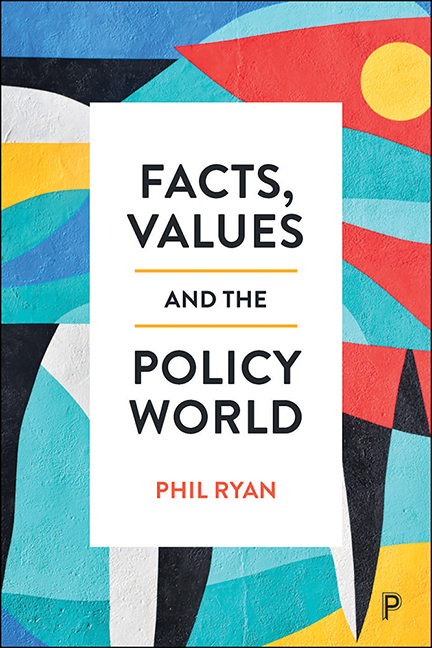1 - Some effects of the binary view
Published online by Cambridge University Press: 15 September 2022
Summary
The great divide
The binary view is, obviously, binary. It introduces supposedly clear divides, not just between statements, but between overall approaches to reality. It dictates which sorts of beliefs may find a home within rigorous thought and which may not. One methods text thus declares that ‘Ideologies contain many normative assumptions, statements, and ideas.’ The social sciences, on the other hand, ‘offer descriptive statements (‘this is how the world operates’) and explanations’ (Neuman, 2011, 59). In like spirit, another methods book states that ‘today social theory has to do with what is, not with what should be’ (Babbie, 2013, 6). For some authors, this does not mean that normative issues are unimportant: they are simply someone else's concern. Levitt and Dubner's popular Freakonomics tells us that morality ‘represents the way that people would like the world to work – whereas economics represents how it actually does work’ (2005, 13, emphasis in original).
At times one gets the impression that the binary view exercises a gravitational pull, dragging down thinkers on the brink of escaping its orbit. Consider the following argument from polymath Herbert Simon:
In the realm of economics, the proposition ‘Alternative A is good’ may be translated into two propositions, one of them ethical, the other factual:
‘Alternative A will lead to maximum profit.’
‘To maximize profit is good.’
The first of these two sentences has no ethical content, and is a sentence of the practical science of business. The second sentence is an ethical imperative, and has no place in any science. Science cannot tell whether we ought to maximize profit. (Simon, 1965, 249, emphasis in original)
As recommended in the Introduction to this work, Simon ‘fills in’ the statement ‘Alternative A is good.’ He recognizes that one can give reasons for a value claim. This, obviously, sits uneasily with his claim that value judgments can only be validated by ‘human fiat’ (1965, 56). How does he resolve the contradiction? By assuming that reason-giving can descend one level and only one level.One can answer the question ‘Why is alternative A good?’ but not the obvious follow-up question, ‘Why is it good to maximize profit?’
- Type
- Chapter
- Information
- Facts, Values and the Policy World , pp. 13 - 26Publisher: Bristol University PressPrint publication year: 2022



